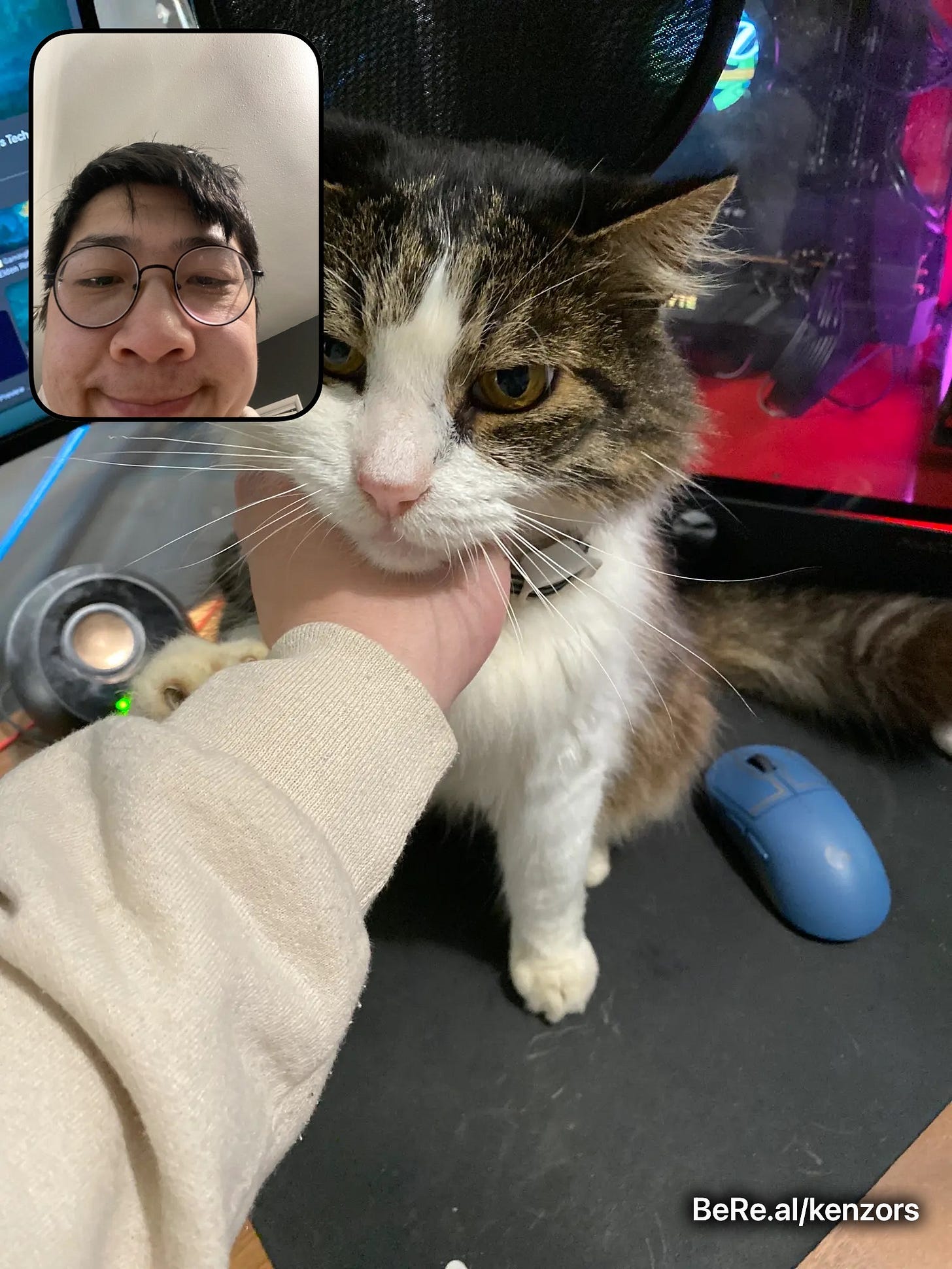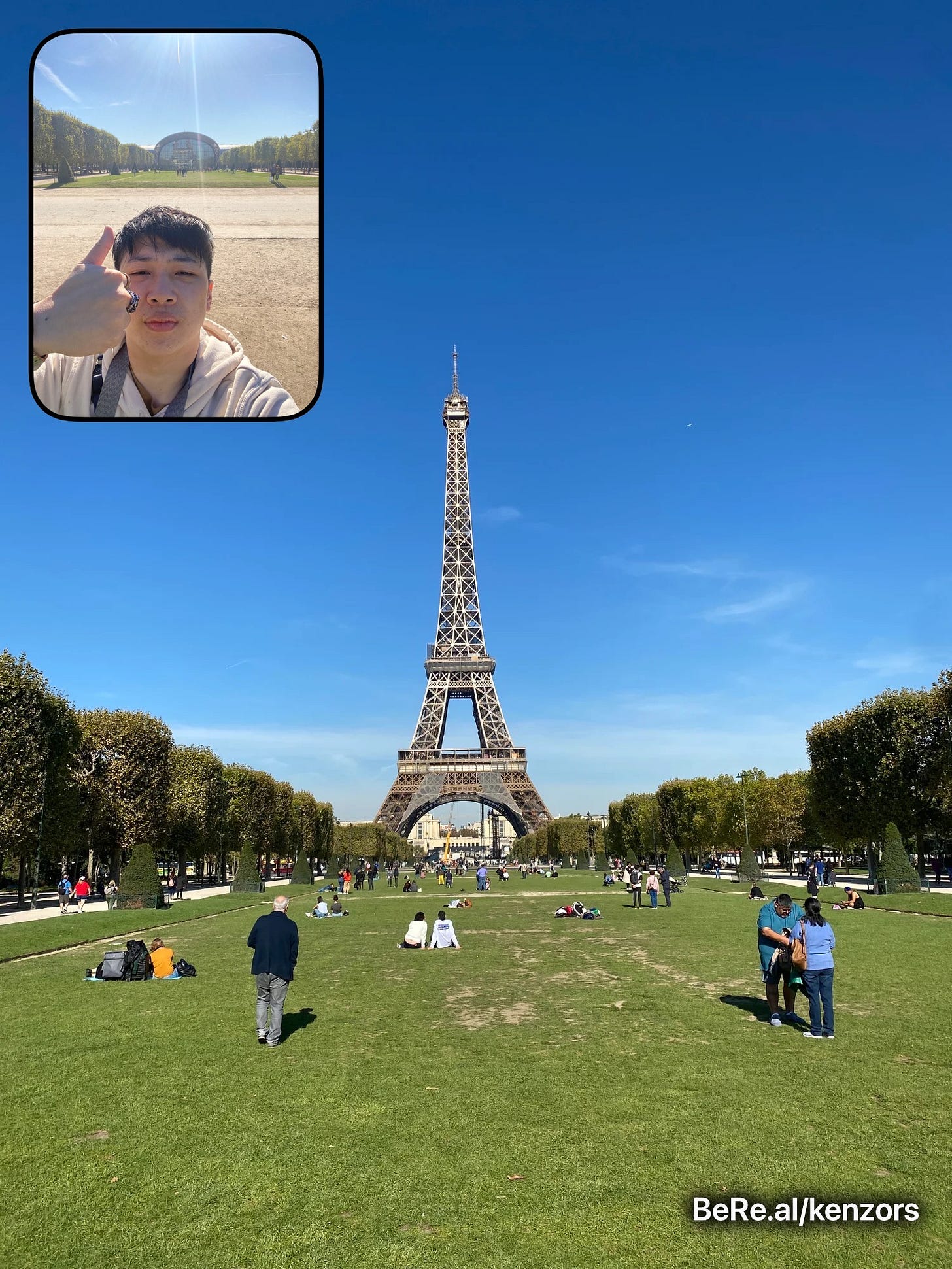performative authenticity and the struggles of measuring self-worth in the digital age
“Be yourself.”
The infamous adage plastered throughout the homes of wine moms everywhere, right next to the Live, Laugh, Love throw pillows. It’s a response to an era of advertising that predicated on the rise of materialism. Rather than chase after the chiselled bodies of Aphrodite and Adonises, this simple proverb imparts the notion that individualism is more important and valued.
“Be yourself,” they said, “everyone else is already taken.”
This idea of authenticity, to be true to oneself, seemingly serves as a rejection of the lofty ideals and standards perpetuated by advertisers and media.
However, we can find the origins of this sentiment dating even back to the Enlightenment era through esteemed wine mom Jean-Jacques Rousseau. It was no surprise during this tumultuous and revolutionary period, amidst the rise of free thinkers, that the touting of individualistic freedoms and beliefs found purchase.
Per Rousseau, authenticity understandably comes from within — their inner self, their beliefs and values have to be congruent with their actions and the way they present themselves. But this authenticity is diminished by the inevitable, social need for the esteem and approval of others. We humans are undeniably social creatures and it is through these social interactions with others that we shape and reaffirm our own identity.
Rousseau never had to worry about post engagement or impressions but the essence of his findings remains the same. As we now take a look at this authenticity through the lens of social media, there now exists this form of continual self-presentation.
How do I want to be perceived?
Before cell phones and the Internet, people were afforded a respite from social interactions and allowed to just ‘be.’
Yet in this modern context, we can tend to find ourselves chronically online. Scrolling through TikTok, Instagram, LinkedIn, etc. we see our peers and idols on these stages. Whether it’s vacations in Japan, a new job position at a Fortune 500, or a baby on the way, these curated highlights dominate our feed.
Exemplified with influencers and celebrities, we see this ‘commodification of self’ all around, where we’ve cultivated and curated this personal brand and self-image for others’ consumption. Social media becomes a marketplace, the users the commodity, and our followers the consumers.
We are now the product, the content we post is our brand. And by virtue and nature of these constant platforms, we are allowed to perpetually mold and shape this image of ourselves that we want to present.
The way we participate in this social world is constantly rooted in this external performance of ourselves. I am guilty of this myself.




My Instagram feed over the years has drastically evolved from the early 2010s. Simple pictures that I wanted to post of my food or my iTunes playlist became much more intentional as time went on. The white borders on the sides, that damned Valencia filter. These became an aesthetic and when I got my first camera, my feed took on an even more ostentatious form.
‘Likes’ were undeniably dopamine-inducing and served to validate my self-esteem. Even now, I’ve archived a majority of these photos in order to maintain the sanctity and purity of the sacred Aesthetic.
The constant need to show our best selves can lead to burnout and in the last few years, there has been a shift towards this pursuit for authenticity or the guise to at least appear authentic.
authenticity as an aesthetic
Influencers paved the way in this regard. Standouts like Emma Chamberlain and David Dobrik thrived on this perceived authenticity, where they gave us constant glimpses of their seemingly genuine everyday life.
The recent democratization of social media and fame also meant that everyone now had the chance to partake in this, not just traditional celebrities. Instagram and TikTok led the charge, spearheading this cultural shift of not just being a ‘user,’ but a ‘creator.’ There was a new market in town and authenticity was its currency.
Social media itself has become more casual as a reflection of this. Oversharing finstas and blurry snapshots of a night out in a parking garage all impart to serve this societal mandate to be authentic. And it is not so much the pursuit of authenticity that matters as much as it is the illusion of effortlessness to appear so.
This latest trend of casual photo dumps and shitposting may seem like a rejection of perfectionism when in reality, it is simply another aesthetic.
A similar case study lies in BeReal, a French social media app that took the world by storm last year. Touted as the anti-Instagram, it provides users with a randomly timed notification throughout the day to take a photo and accompanying selfie. Through these spontaneous notifications, users are encouraged to post the mundane. By posting ‘real’ moments, it sought to break down the veiled facade of the glamorous, carefully chosen posts we would otherwise see.
Yet even in its pursuit of authenticity, BeReal becomes a further symptom of the problem, rather than a solution. As I got more acquainted with the app, I found myself more often than not, taking BeReals of my computer screen or my cat, Mr. Frodo Baggins.
And this was naturally BeReal’s intention; a casual, low maintenance medium of highlighting the realistic parts of everyday life and taking comfort in the fact that you and your friends may not be going out every night.
This was great initially, but over time I started shaking my fist at the clouds, frustrated that BeReal would never prompt me when I was actually doing something worth a photo op. The natural progression for this led to me saving the notification for later in the day, when I knew I had something more exciting to capture.
Then there would be times where I was genuinely in the moment, only to check my phone some time after and find that BeReal notification resting atop my lock screen, waiting for me to engage with the app in order to validate my authenticity to my adoring fans.
The irony was not lost on me.
measuring self-worth
To be clear, there’s nothing inherently wrong with performative authenticity. But failing to recognize its effects can lead to unhealthy expectations with oneself and a sense of insecurity. The urge to compare ourselves to others is something we all struggle with, but it shouldn’t take away from our own self-worth or identity.
The notion of genuine authenticity on these online platforms seems out of reach at the moment, I find even its feasibility questioned. For now, attempts at online authenticity only serve to further shackle us to these platforms, in a never-ending loop of performance. This isn’t to say we have to drop off the grid entirely either. Just approach it, like all things, with a healthy dose of scepticism.
At the end of the day, we are people, not products for capitalistic consumption. Regardless of how we’ve curated our highlights or photo dumps, there is value in our very existence beyond the amount of likes or views, just by virtue of being…real.






